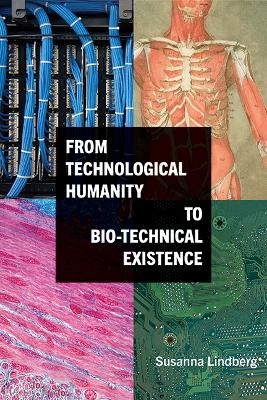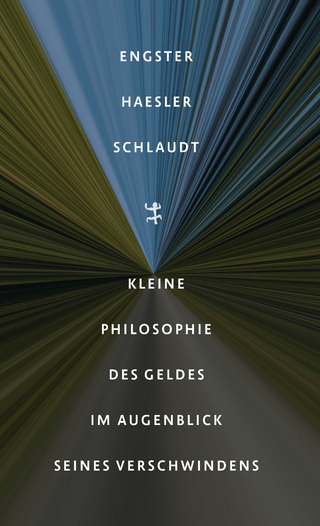
From Technological Humanity to Bio-technical Existence
Seiten
2023
State University of New York Press (Verlag)
978-1-4384-9258-2 (ISBN)
State University of New York Press (Verlag)
978-1-4384-9258-2 (ISBN)
Explores the relationship between technics and humanity, tracing the emergence of a bio-technical conception of existence in contemporary continental philosophy.
From Technological Humanity to Bio-technical Existence can be framed as a metaphysics of the present. It starts from the current epoch, an era increasingly marked not only by technology but also by technics in the most general sense, and asks how this affects human existence. The book asks what is called technics, what is called humanity, how these relate to one another, and how changes in these notions oblige us to revise the philosophical notion of existence. It investigates how the idea of technological humanity—of technology as an extension and instrument of the human—is discovered and deconstructed by Martin Heidegger, Helmuth Plessner, Michel Foucault, Jacques Derrida, Bernard Stiegler, and Giorgio Agamben. Finally, the book presents a new idea of bio-technical existence, one that underlies these philosophers' works without being fully elaborated. This idea—of technics as a condition of humanity that humans share with other living and technical beings—is the author's own philosophical proposition and the final result of the book.
From Technological Humanity to Bio-technical Existence can be framed as a metaphysics of the present. It starts from the current epoch, an era increasingly marked not only by technology but also by technics in the most general sense, and asks how this affects human existence. The book asks what is called technics, what is called humanity, how these relate to one another, and how changes in these notions oblige us to revise the philosophical notion of existence. It investigates how the idea of technological humanity—of technology as an extension and instrument of the human—is discovered and deconstructed by Martin Heidegger, Helmuth Plessner, Michel Foucault, Jacques Derrida, Bernard Stiegler, and Giorgio Agamben. Finally, the book presents a new idea of bio-technical existence, one that underlies these philosophers' works without being fully elaborated. This idea—of technics as a condition of humanity that humans share with other living and technical beings—is the author's own philosophical proposition and the final result of the book.
Susanna Lindberg is Professor of Continental Philosophy at Leiden University in the Netherlands. Her many books include Techniques en philosophie and The Ethos of Digital Environments: Technology, Literary Theory and Philosophy (coedited with Hanna-Riikka Roine).
Acknowledgments
Introduction
1. What Is the Human Being?
2. What Is Called Technics?
3. The Originary Technicity of the Human Being
4. De/constructing Humanity
5. Humanity and Inhumanity of Technical Communities
6. From Technological Humanity to Bio-technics
Notes
Bibliography
Index
| Erscheinungsdatum | 20.04.2023 |
|---|---|
| Reihe/Serie | SUNY series, Intersections: Philosophy and Critical Theory |
| Zusatzinfo | Total Illustrations: 0 |
| Verlagsort | Albany, NY |
| Sprache | englisch |
| Maße | 152 x 229 mm |
| Gewicht | 227 g |
| Themenwelt | Geisteswissenschaften ► Philosophie ► Metaphysik / Ontologie |
| Geisteswissenschaften ► Philosophie ► Philosophie der Neuzeit | |
| Naturwissenschaften | |
| ISBN-10 | 1-4384-9258-8 / 1438492588 |
| ISBN-13 | 978-1-4384-9258-2 / 9781438492582 |
| Zustand | Neuware |
| Haben Sie eine Frage zum Produkt? |
Mehr entdecken
aus dem Bereich
aus dem Bereich
Buch | Hardcover (2024)
Matthes & Seitz (Verlag)
28,00 €
Über konstruktivistisches Denken in der Theologie
Buch | Softcover (2024)
Verlag Herder
58,00 €


